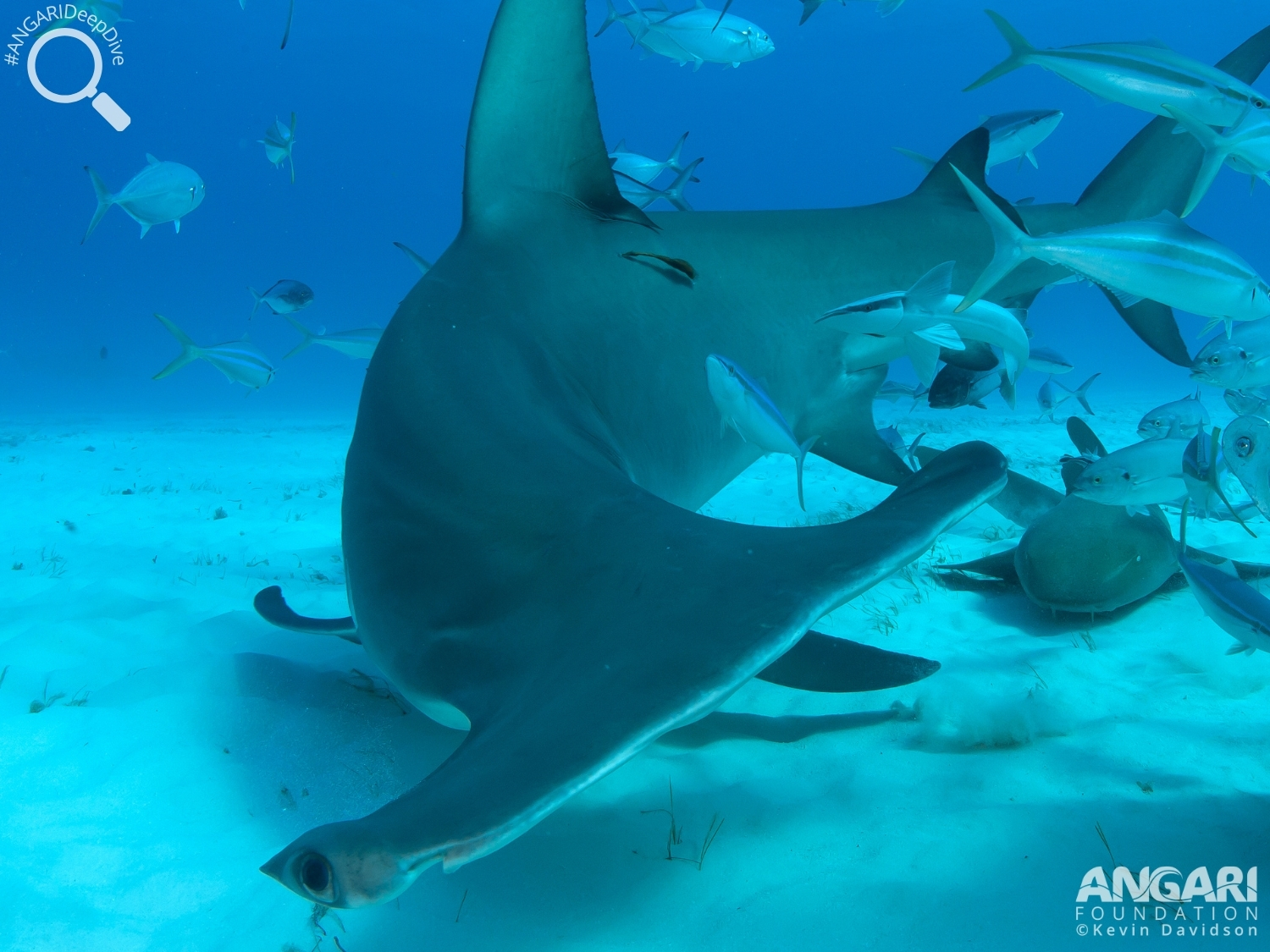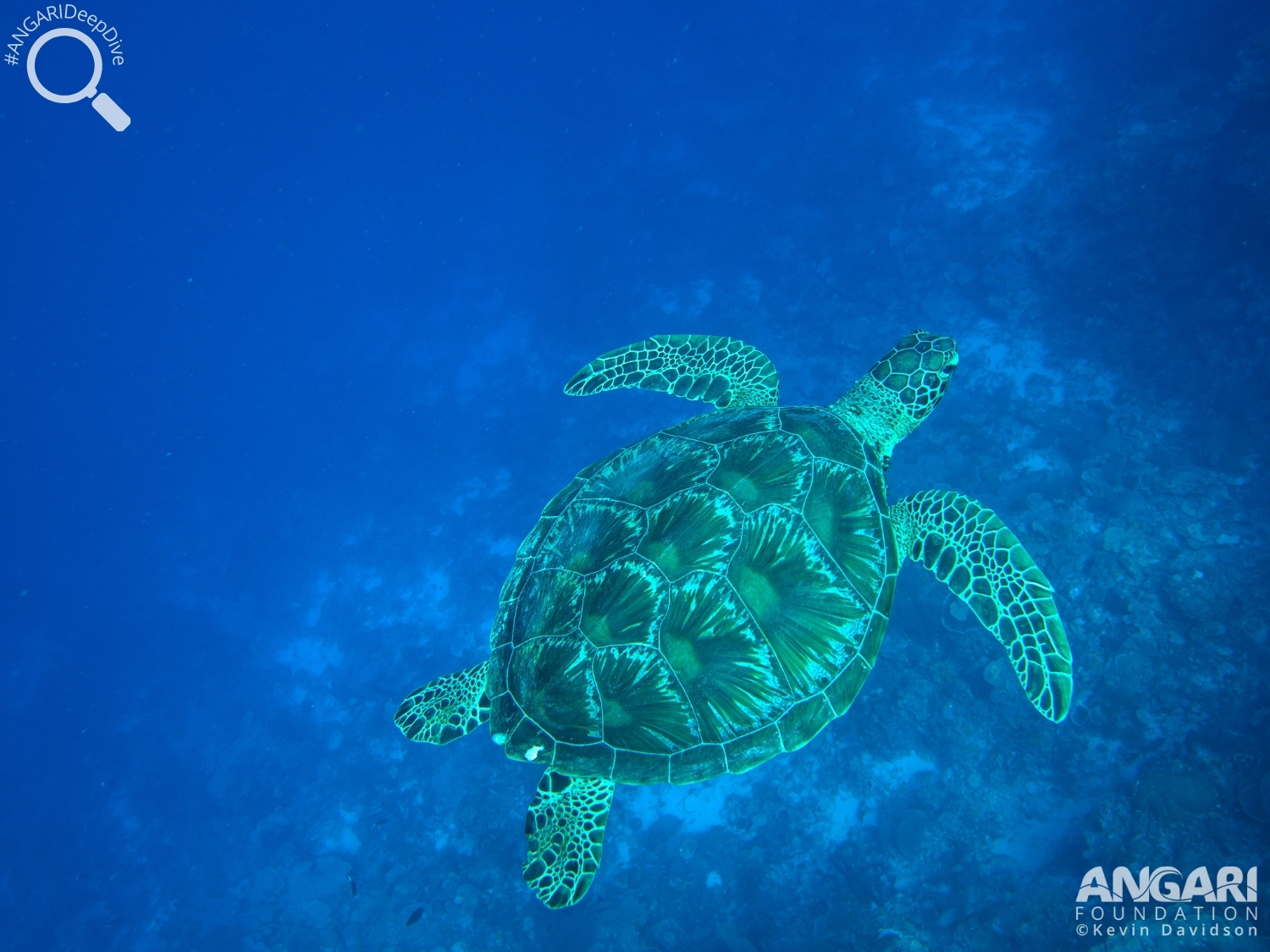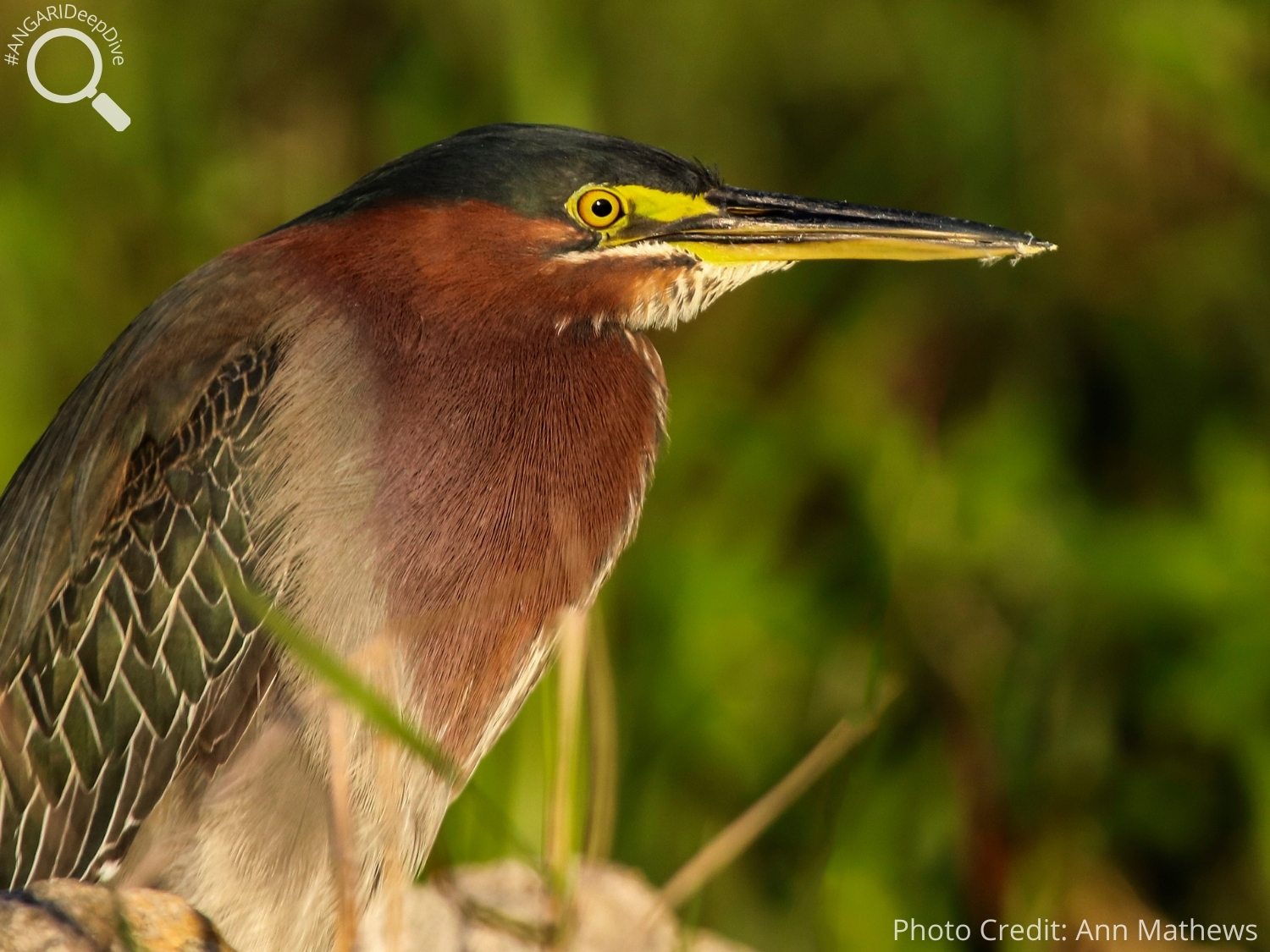The great hammerhead shark (Sphyrna mokarran) is an apex predator within the shark community and…
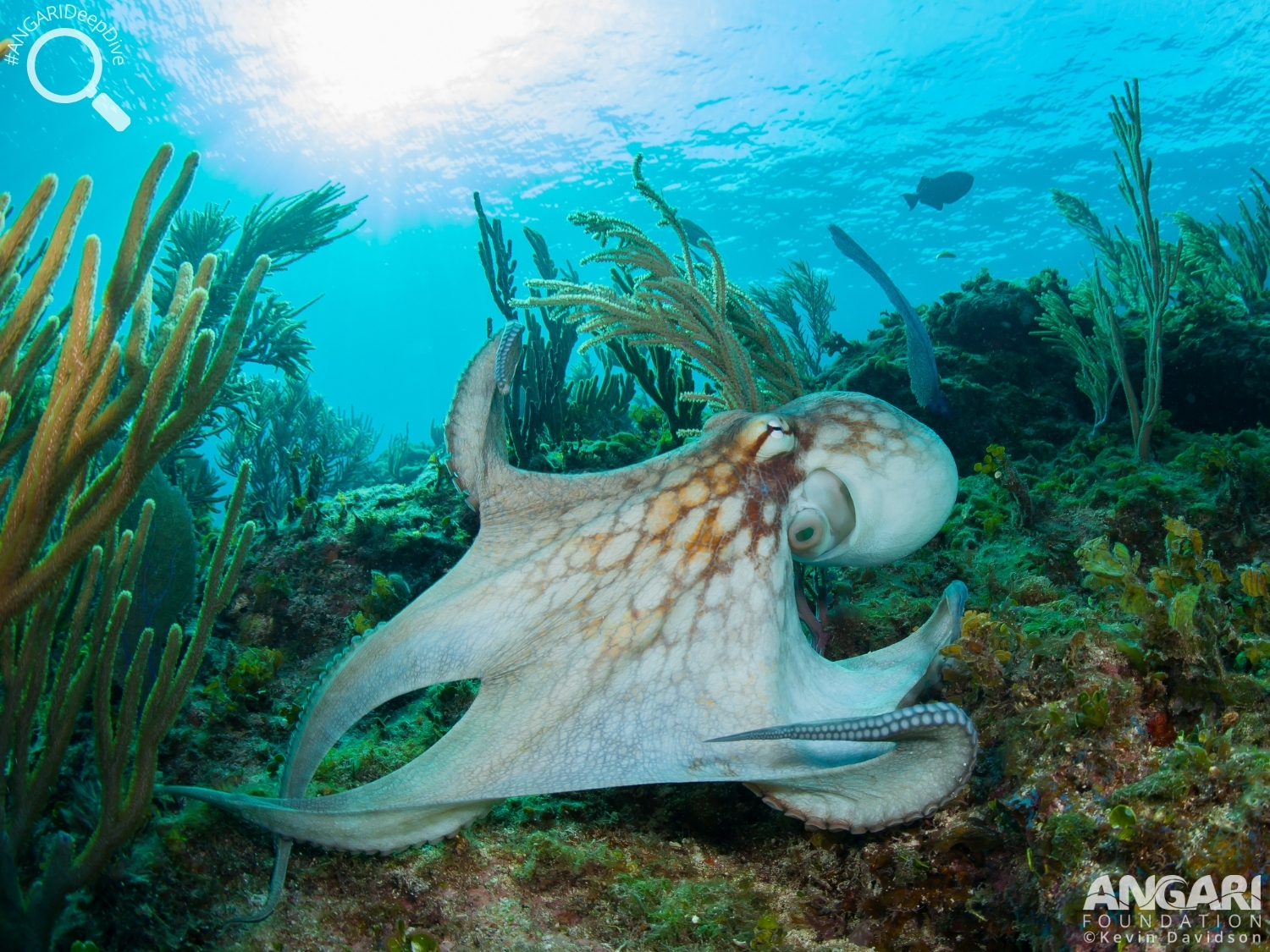
Caribbean Reef Octopus (Octopus briareus)
A master of disguise, the Caribbean reef octopus (Octopus briareus) is found in warm waters around coral reefs and grassy and rocky seabeds.
Read on for some ink-redible fun facts about the Caribbean reef octopus.
#1: Caribbean reef octopuses aren’t just found in the Caribbean Sea.
Although the clue is in the name and the Caribbean reef octopus is found in the warm tropical waters of the Caribbean Sea, they can also be found in the waters of south Florida down to the northern coast of South America.
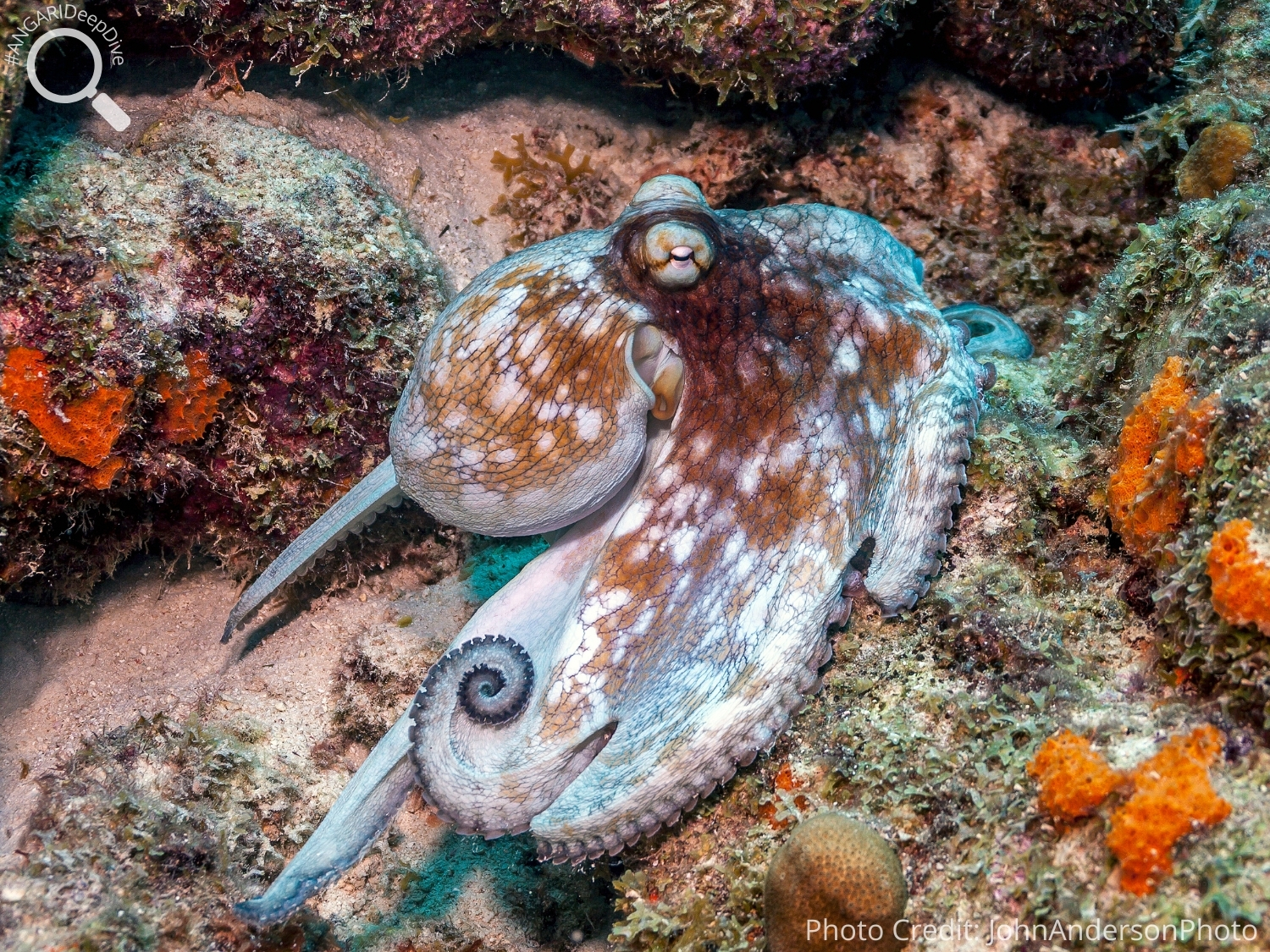
#2: Caribbean reef octopuses can be identified by their distinctive coloring.
Caribbean reef octopuses are characterized by their distinctive blue-green color and often have mottled brown markings. This coloring is very reflective, which makes it easier to spot them at night with a dive light!
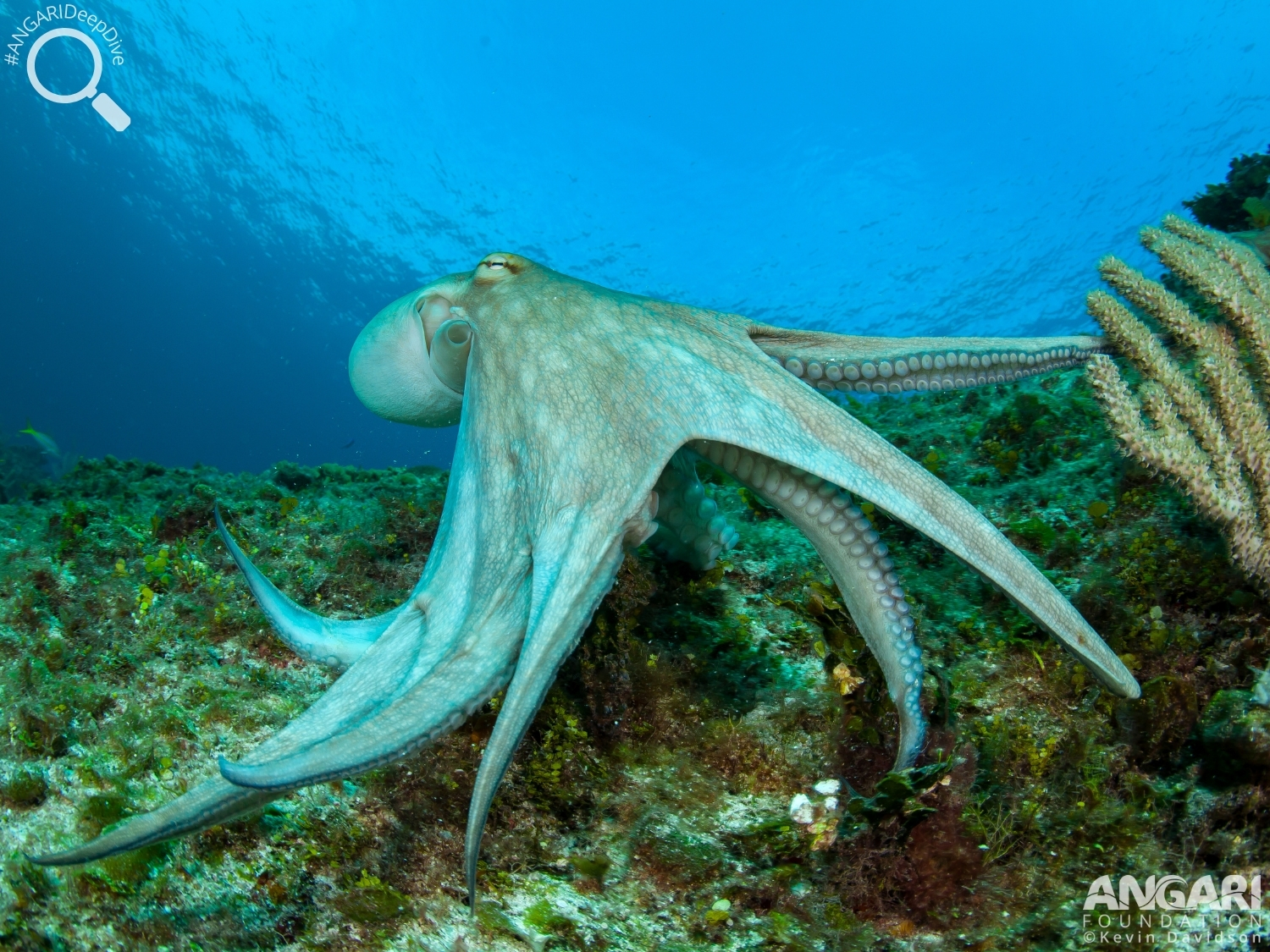
#3: The Caribbean reef octopus is a master of disguise.
The Caribbean reef octopus is a master of camouflage. Often, it is so well hidden, it cannot be spotted until it moves. Even though these animals are colorblind, the Caribbean reef octopus can change both its skin color and texture to match any background.
To achieve their amazing camouflage, Caribbean reef octopuses use chromatophores. Chromatophores are organs present in the skin of an octopus that contain little sacs of pigment. At will, the octopus can send an electrical signal to open the pigment sac, causing their skin color and texture to change so it can blend in with the surrounding environment.
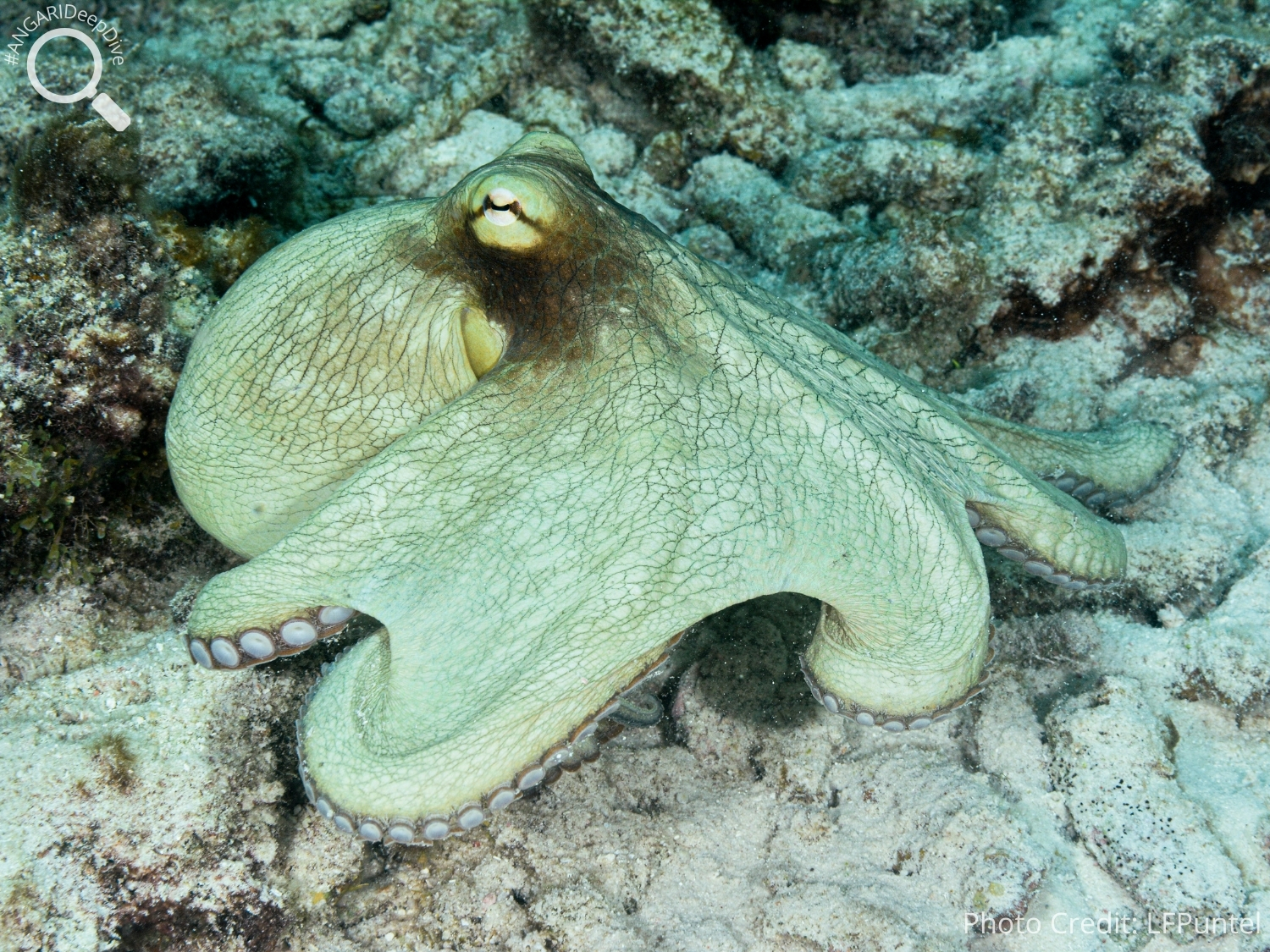
#4: The inky defense of the Caribbean reef octopus.
Many large bony fish and reef sharks eat Caribbean reef octopus. This octopus defends itself against these predators by sucking up water and expelling it quickly to form a jet, enabling the octopus to propel itself away and out of danger. They combine this movement with the expelling of a poor tasting, dark ink cloud towards the predator, which masks the octopus’ escape and deters the predator.
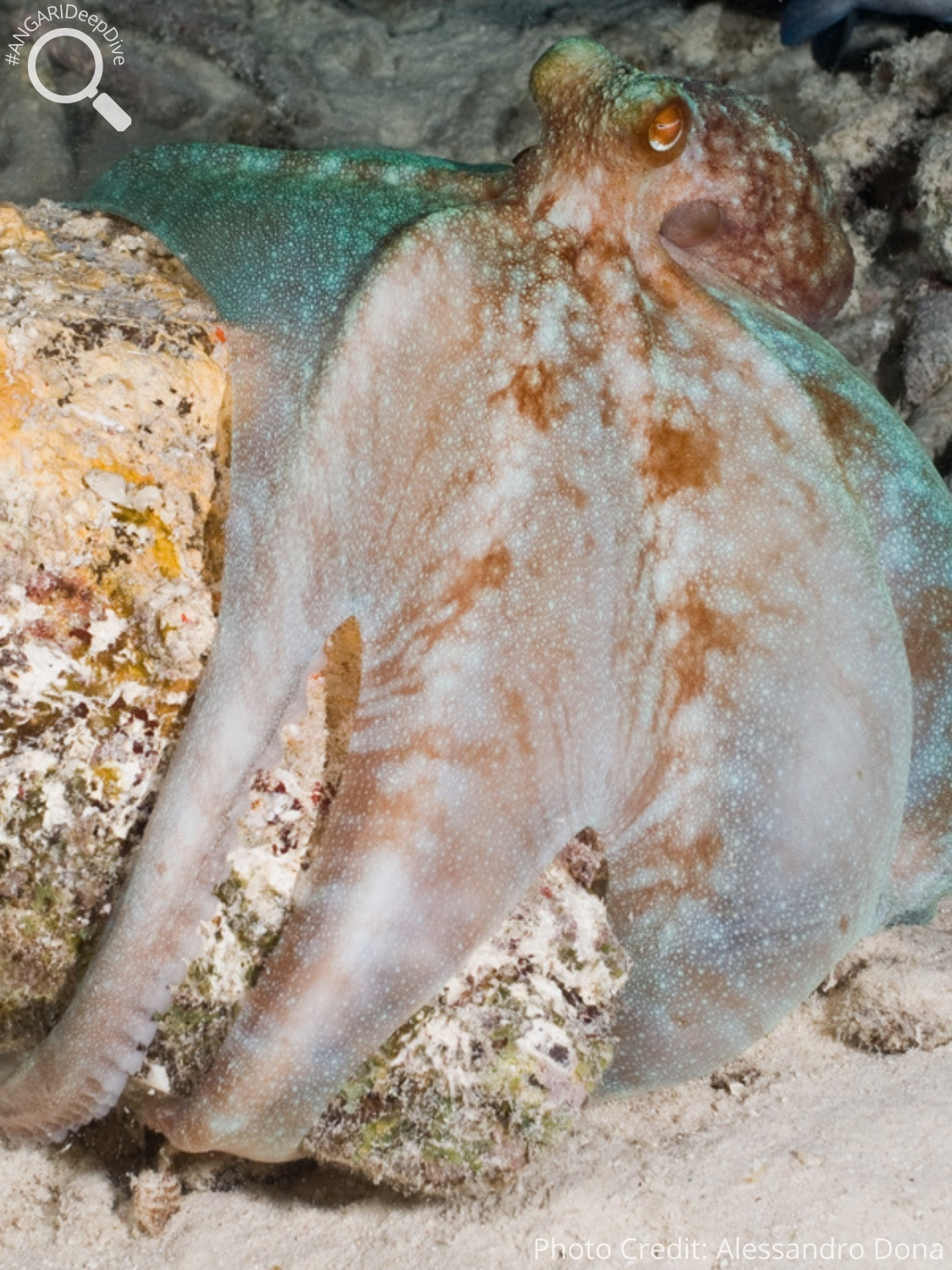
#5: What does the Caribbean reef octopus eat?
Caribbean reef octopuses are foraging predators on coral reefs. They hunt by night and eat a variety of prey, including invertebrates like clams, snails, crabs and lobsters. They have even been known to practice cannibalism, especially in captivity when multiple octopus are together or if another octopus encroaches on their territory.
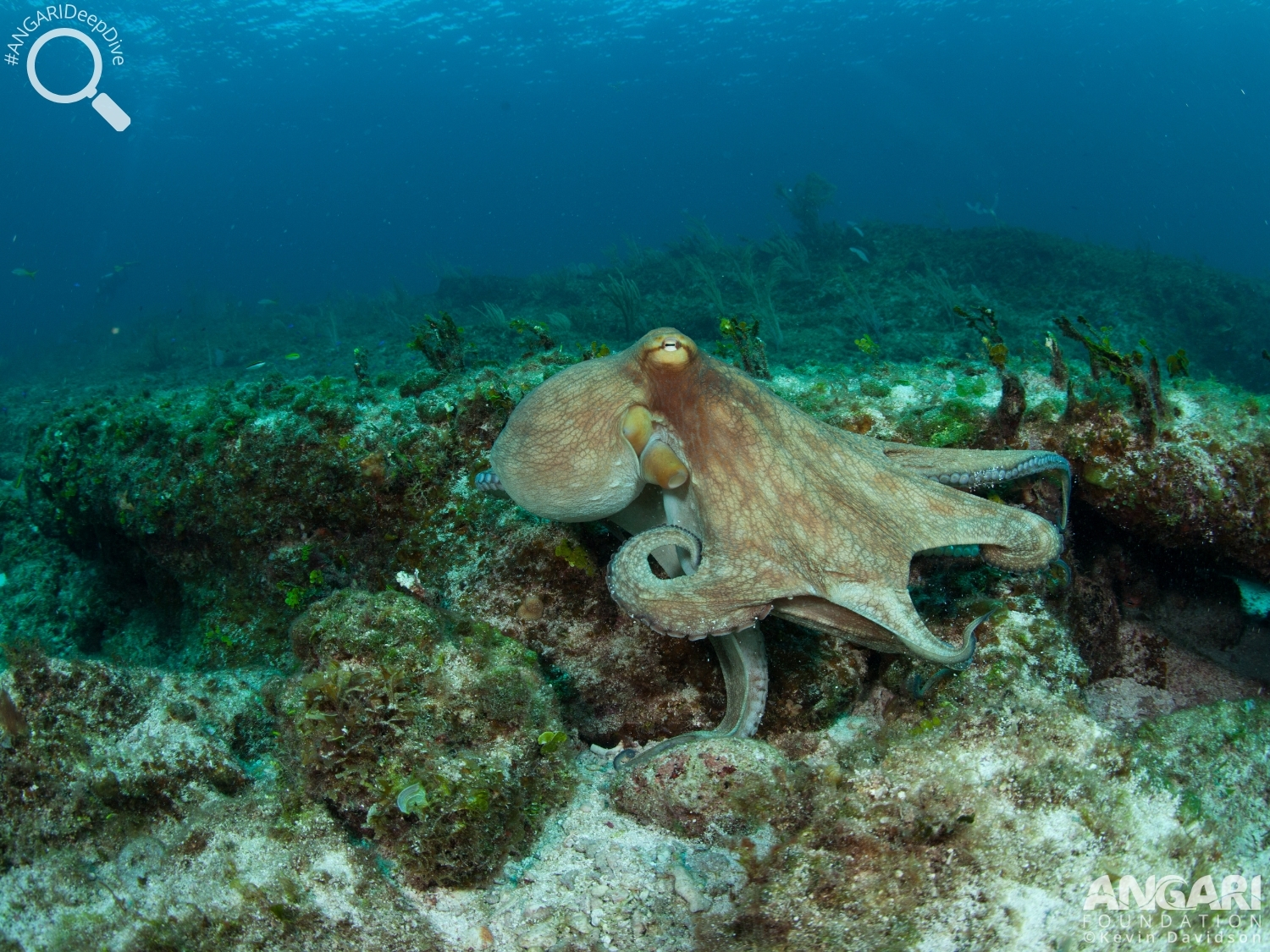
#6: The Caribbean reef octopus is a genius!
Octopuses are considered the most intelligent of all invertebrates! They are able to remember where predators live and actively avoid them. The Caribbean reef octopus has also been documented learning from other species, camouflaging as algae and holding onto shells to better blend in with its surroundings.
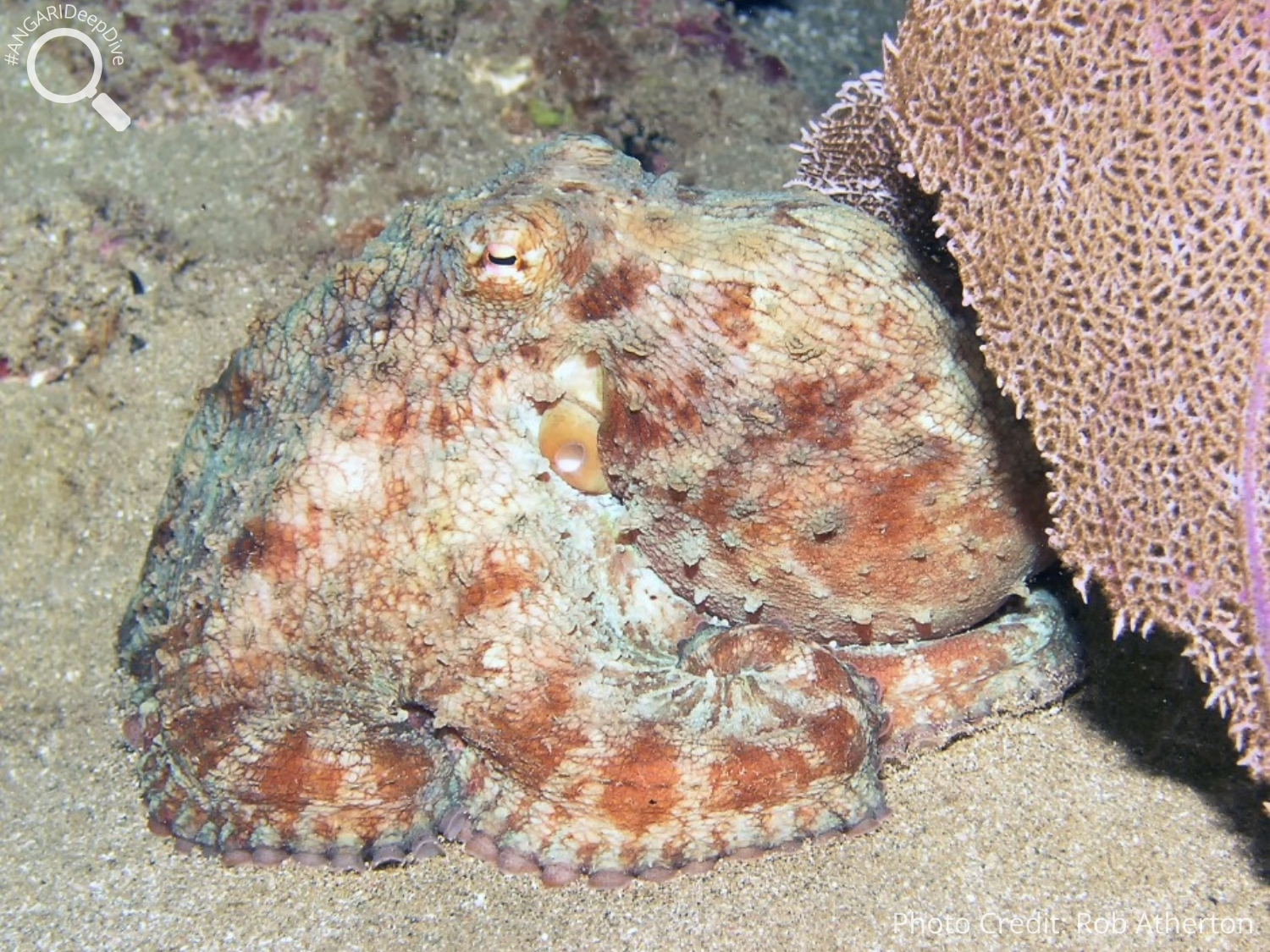
#7: Caribbean reef octopuses mate for life.
Male and female Caribbean reef octopuses look very similar, except that males have a specialized arm called a hectocotylus that they use for reproduction. Pairs mate for life and only reproduce once – the mother will die in her den protecting her babies until they hatch. Hatchlings mature quickly, growing to 3/4 of their full size in the first 17 weeks.
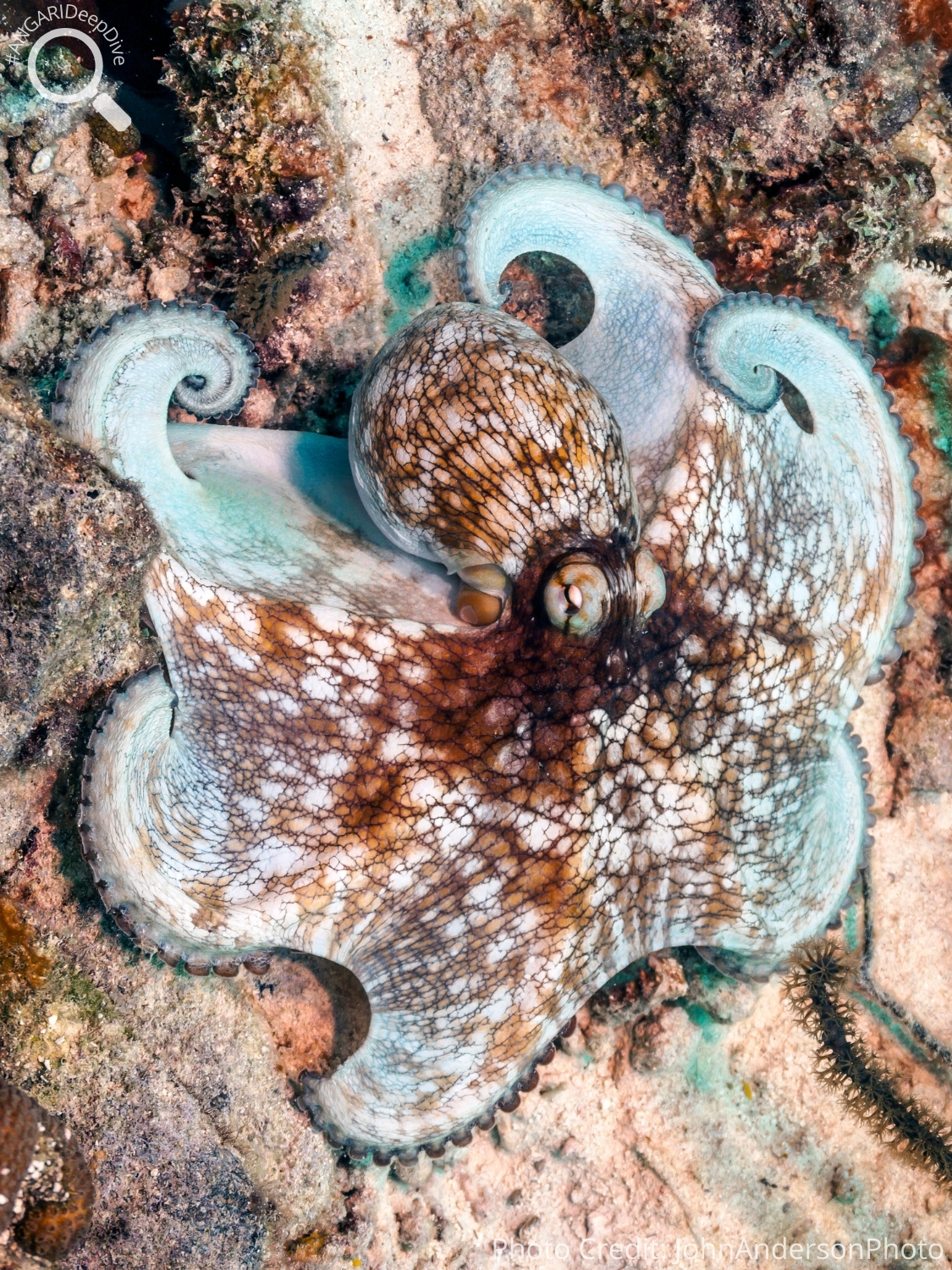
#8: Who needs one heart when you can have three!
The Caribbean reef octopus has three hearts, and each one has its own role. The central heart has the role of pumping oxygenated blood to its muscles and organs, and the other two hearts are responsible for pumping the blood through the gills to get oxygen. A fun fact about octopus blood is that it is actually blue and not red like ours. This is because instead of containing hemoglobin, it contains hemocyanin which is a copper based protein that appears blue in color.
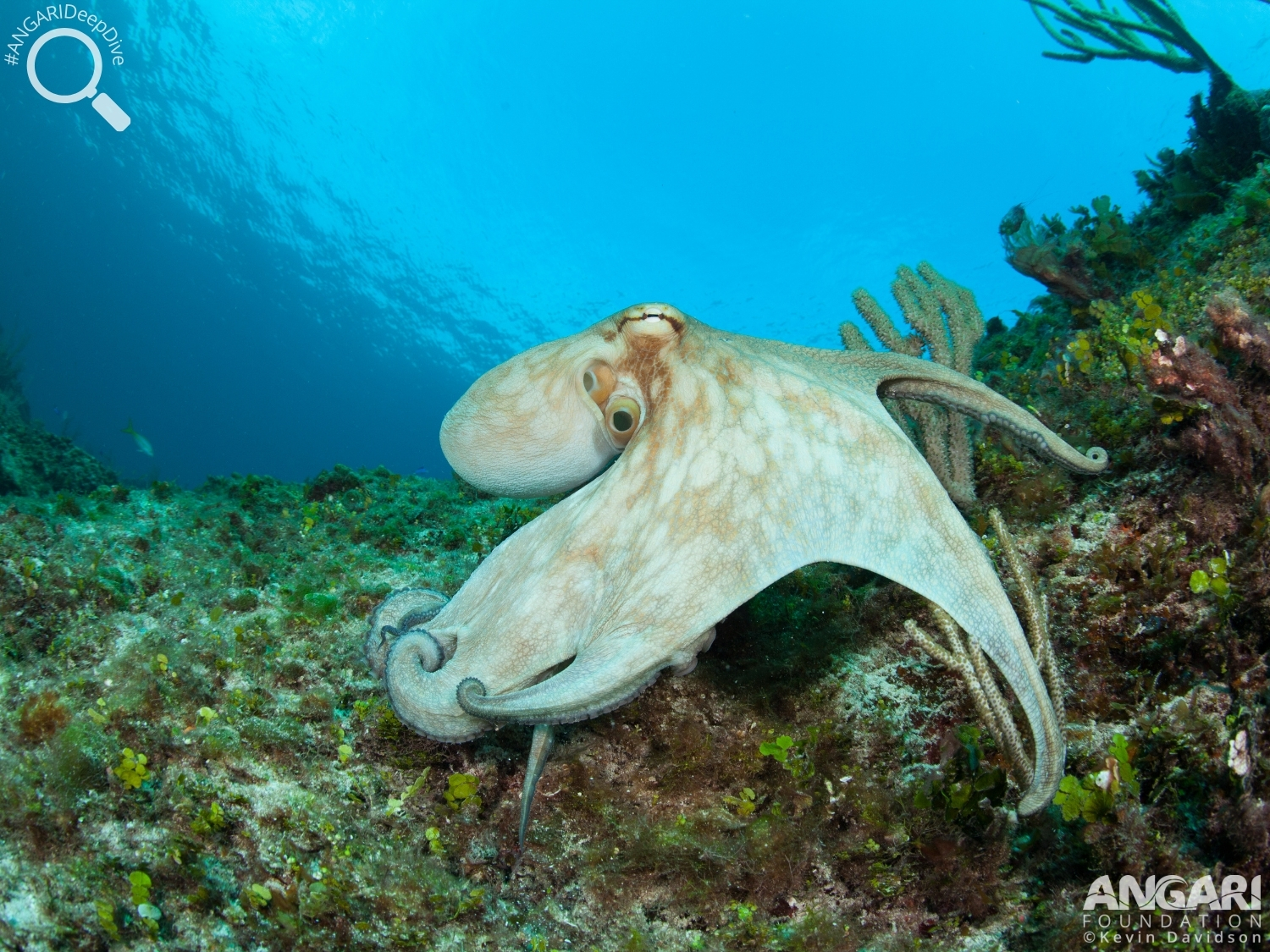
#9: Do Caribbean reef octopuses have bones?
Caribbean reef octopuses are invertebrates. They not only lack a backbone but also have no bones whatsoever. This gives them an amazing ability to squeeze through the smallest holes and crevices. Their beak is the only hard part of their body, so if their beak fits, then the rest of their body will fit too.
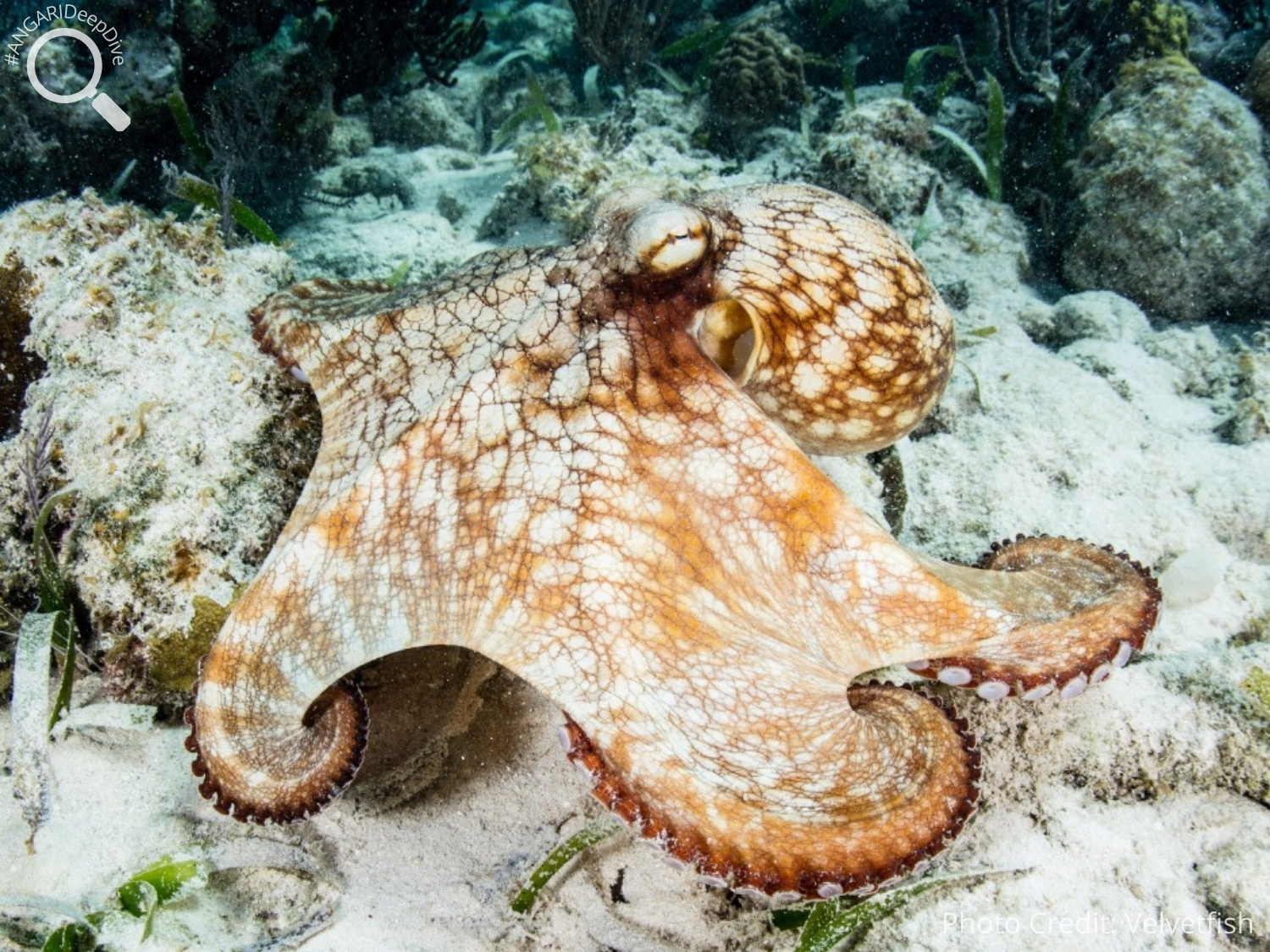
Caribbean reef octopuses are not currently listed as endangered. They are not commercially fished, but small artisanal fisheries have depleted them in some locations. Since the Caribbean reef octopus lives on coral reefs, the biggest threat they currently face is the loss of reef habitat. Therefore, you can help them by protecting their coral reef home! Choose sustainably caught seafood (look for the Ocean Wise Seafood seal of approval), use reef safe products, reduce your plastic use and support conservation organizations and efforts working to protect the marine ecosystem.
Additional Caribbean Reef Octopus Resources:
1. @octonation – The Largest Octopus Fan Club, a Nonprofit Organization
2. Oceana – Caribbean Reef Octopus
3. Ocean Expert Exchange with Dr. Chelsea Bennice
4. How to Draw an Octopus hosted by OctoNation’s Chris Adams & ANGARI Foundation

